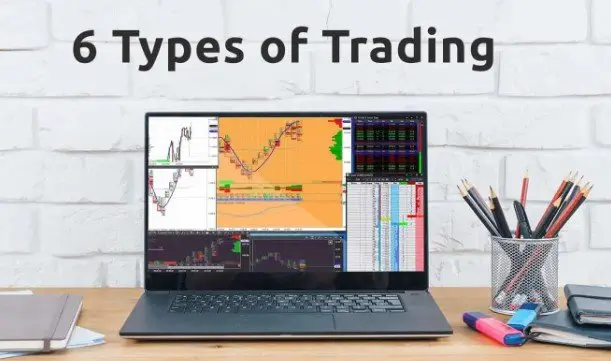
Base Scenario
The main scenario is, that on the horizon until 2025, the economic and other sanctions imposed against Russia will remain, and Russian export goods on the world market will continue to be sold at a discount.
In the global economy, major central banks will continue to raise rates in response to accelerating inflation. According to the forecasts of the Central Bank, this will inevitably slow down the pace of global growth, But prudent monetary policy will allow major economies to avoid a large-scale recession. Inflation abroad will return to values near the target at the end of the 2023 — early 2024, And the growth of the global economy will begin after mid-2023.
In this scenario, the Russian economy will contract in 2022 and most of 2023, adjusting to "changing external conditions". In 2024, there will be a slight increase, and in 2025, GDP will return to a potential growth rate of 1.5-2.5%, expects the Central Bank.
Inflation by the end of 2022 will be at the level of 12-15%, in 2023, it will decrease to 5-7%, and by the end of 2024, it will return to the target of 4% and will remain at this level, calculates the Bank of Russia.
How the main indicators of the economy will change under the baseline scenario
| 2021 | 2022 | 2023 | 2024 | 2025 | |
|---|---|---|---|---|---|
| Inflation, December to December of the previous year | 8,4 % | 12—15 % | 5—7 % | 4 % | 4 % |
| GDP | 4,7 % | (−6)—(−4) % | (−4)—(−1) % | 1,5—2,5 % | 1,5—2,5 % |
| Annual average key rate | 5,7 % | 10,5—10,8 % | 6,5—8,5 % | 6—7 % | 5—6 % |
Accelerated adaptation
Most optimistic scenario, with GDP growth possible as early as 2023. But on condition, that the Russian economy is adapting faster, than in the baseline scenario. The rest of the conditions are almost the same: A large-scale recession will be avoided in the global economy, Despite rate hikes by major central banks, And the geopolitical background will not change relative to the state of mid-2022.
In this scenario, the main stake is placed on the development of imports through new economic ties and parallel imports. If this script works, then the economy will cope with the shock faster.
Export of Russian goods, including oil and gas, will also show growth due to new routes and methods of energy delivery, transport, insurance and other logistics costs.
In such conditions, the Central Bank expects, that Russia's GDP could start growing as early as 2023, And inflation will approach the target. In 2024-2025, the rate of price growth will remain close to 4% with a key rate in the neutral range of 5-6% per annum.
How the main indicators of the economy will change with accelerated adaptation
| 2021 | 2022 | 2023 | 2024 | 2025 | |
|---|---|---|---|---|---|
| Inflation, December to December of the previous year | 8,4 % | 12—15 % | 3,5—5,5 % | 4 % | 4 % |
| GDP | 4,7 % | (−6)—(−4) % | (−2)—(−1) % | 2,5—3,5 % | 2—3 % |
| Annual average key rate | 5,7 % | 10,5—10,8 % | 5,5—7,5 % | 5—6 % | 5—6 % |
global crisis
This is the worst scenario. It assumes, that fragmentation in the global economy will increase, tension will rise. Instead of developing common markets and standards, countries will increasingly concentrate trade in regional blocs and focus on increasing the localization of production.
In such a scenario, the Central Bank sees two risks, which can be realized at the same time and reinforce each other:
- Significant deterioration in the global economy. Sustained high inflation in major economies will require central banks to tighten monetary policy, and raising rates may not be enough. This will result in a recession..
- Increasing geopolitical tensions in the world, imposition of new sanctions against Russia, including export restrictions. Then the supply of oil will decrease., Its prices will rise. Companies' costs will rise, and inflation will accelerate even further.
This could lead to a new global financial and economic crisis, comparable in scale to the crisis of 2007-2008, warned the Central Bank.
For Russia, development under this scenario means a decrease in external demand and export volumes. In such conditions, it will be more difficult to adapt the economy, and as a result, Russia's GDP will shrink more in 2023, than in 2022, will continue to fall in 2024 and only in 2025 may it return to growth by 1%, predicts the Central Bank.
Inflation in 2023 may rise to 13-16% amid a weakening ruble and increased supply-side constraints. The Bank of Russia will be forced to significantly raise the key rate compared to the baseline scenario and maintain it at an elevated level.
How the main indicators of the economy will change during the global crisis
| 2021 | 2022 | 2023 | 2024 | 2025 | |
|---|---|---|---|---|---|
| Inflation, December to December of the previous year | 8,4 % | 12—15 % | 13—16 % | 8—9 % | 4 % |
| GDP | 4,7 % | (−6)—(−4) % | (−8,5)—(−5,5) % | (−3)—(−2) % | 0—1 % |
| Annual average key rate | 5,7 % | 10,5—10,8 % | 11,5—13,5 % | 12—13 % | 6—7 % |



